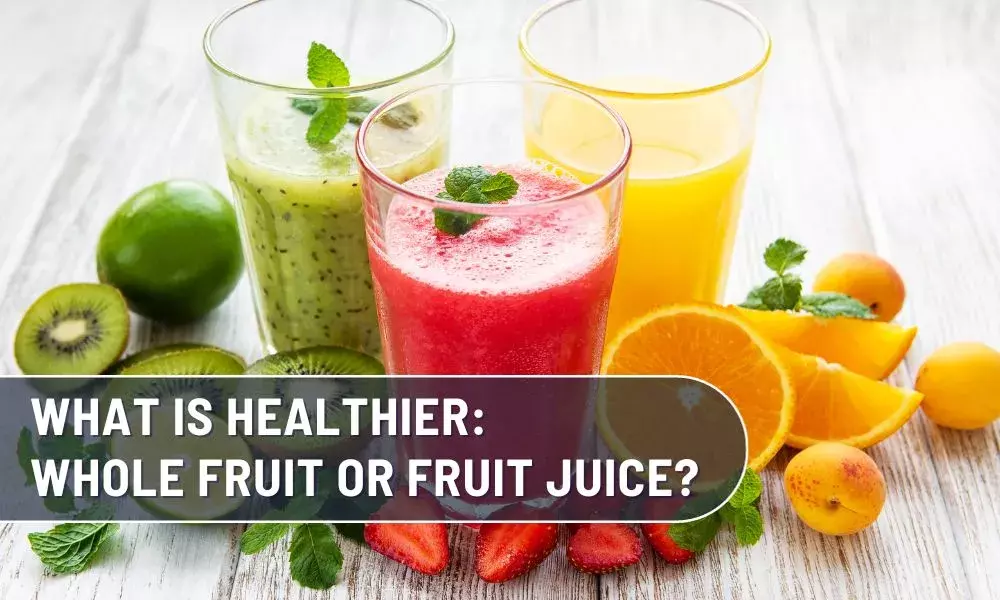Freshly made fruit juice is widely preferred by people every morning to kickstart their day as it is considered a healthier option worldwide. However, fruit juice may appear healthy, but it may have some disadvantages to our health.
Fruit juices – Healthy or Unhealthy?
Fruit juices are the concentrated form of whole fruit. While making juice from fruit, we tend to lose significant nutrients. This makes juices less healthy than whole fruit, even freshly made.
Additionally, juices are not a good option for diabetics, as they can cause a spike in blood sugar levels due to their sugar content.
Moreover, juices can cause weight gain owing to their high sugar content. Lifestyle diseases like diabetes, hypertension, and heart problems are linked to obesity and weight gain. So, starting the day with fresh fruit juice may not be a great idea.
It can be beneficial if one consumes fruit juice the right way, retaining maximum fiber content and not adding additional sugar. However, it is not meant to replace our daily intake of whole fruits.
Five reasons why eating whole fruits is better than consuming juice
-
Rich in dietary fiber
The major disadvantage of drinking juice is the lack of fiber. While juice is extracted from fruit, sugar in fruit is released and eliminates fiber. That is why one should consume fruits, as they are high in fiber. The presence of dietary fiber and other nutrients in the fruit’s skin and pulp makes it a healthier option than juice. This helps in the digestion process and allows to get rid of constipation.
-
Essential nutrients
While fruit juice is extracted from whole fruits, the pulp of the fruits is removed or filtered. The pulp of many fruits is high in vitamins and other essential nutrients. The process of extracting juice results in the loss of nutrients. For example, oranges are rich in flavonoids, but much of this nutrient is stored in the pulp of the orange, which is lost while extracting the juice.
-
Manages hunger pangs
The best way to relieve our hunger pangs is by eating fruits. Fruits, when eaten during snack time, can help relieve hunger by regulating our appetite, making us feel full, and helping manage hunger-associated cravings. In turn, fruits provide enough calories to perform all the body activities without increasing our calorie intake.
-
A good dental exercise
Fruits need to be chewed before swallowing. Chewing fruits slowly and properly helps to promote teeth and oral health. Along with enhancing our dental health, it helps with digestion, thanks to the absorption of nutrients. It also prevents overeating, which leads to weight gain. Juice, on the other hand, does not provide any such benefit. So, chew fruits well to gain all the benefits.
-
Manage weight
Fruits make us feel fuller for longer and help us avoid binge-eating fast foods, which, in turn, can help manage weight, diabetes, and blood sugar. It also keeps the doctor away and hunger cravings at bay.
In a nutshell
Both fruit and fruit juice can be part of a healthy diet. If one prefers to drink fruit juice, fresh fruits must be chosen and no sugar should be added. It is better to squeeze it at home and retain maximum fiber content. However, whole fruits are a better choice because they are rich in dietary fiber.
One must prefer whole fruits as a snack, in a salad, or as a part of a meal in a daily diet for unlimited health benefits. One can add sliced apple or banana to sandwiches, sprinkle some berries into pancake or waffle batter, or add sliced fruit to cereal or oatmeal.





